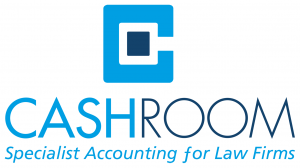Are you making these six dangerous accounting mistakes?
As a legal business, do you update your “books” manually or rely on accounting software?
DIY accounting might save you the immediate expense of a professional accountant or bookkeeper, but could be costing your business more in the long run.
Accounts, including those produced by software, are only as accurate as the figures fed into them. Without professional guidance, you risk overpaying tax, incurring penalties, disrupting your cash flow and misinterpreting your business’s financial health. Here we look at six common accounting mistakes that could be costing your law practice!.
If you are currently taking the “DIY” approach to your legal accounts, contact us today to find out how we could save you time, money and worry.
1. Using your accounting software wrongly or using the wrong software
Accounting software can seem like the perfect solution to your accounting woes. Unfortunately, your software cannot stop you from entering incorrect data, using the wrong settings or misunderstanding the information it provides. When used correctly it can be a useful financial tool, but used incorrectly may put your business at risk! 
The first question you should be asking yourself is “does your current accounting programmeet your needs?”. Creating workarounds to compensate for missing features increases the risk of mistakes being made more likely, and errors can compound over time. Unpicking complicated problems further down the line is likely can require professional input and considerable expense.
Remember, software cannot replace an actual accountant. At a minimum, you should ask a professional to review the accounts created using software to make sure everything is in order. They can also give you additional money-saving insights specific to your legal business that your software cannot provide.
2. Not recording cash expenses
It is vital to record your cash expenses meticulously. Otherwise, you may forget to account for them when it comes to filing your return(s). Not only will you be liable for additional tax than you should be, but you will also have an incorrect picture as to your company’s cash flow and future position
Be systematic with your recording of cash expenses. Many business owners like to take a quick snap on their mobile phone straight away. Accounting programs often let you match the image with the transaction immediately. 
If you do not record your cash expenses immediately then you should ensure that you have a secure place to store all your receipts. Once a week, take photos or scanned copies and upload them to your expenses folder or accounting program. That way, you remember to record them, and you have evidence of your expenses for HMRC.
3. Reconciling receivables late
When you receive a payment, you should reconcile it against its receivable promptly. If you do not, your revenue account can quickly become difficult to reconcile. This could lead to expensive mistakes, such as overlooking unpaid invoices.
Unreconciled payments make it impossible to view your finances clearly. Without a clear sense of your cash flow, you could make decisions that damage your business’s health, such as the delay of paying a supplier, not investing in new equipment when it is needed or accumulating unnecessary interest on a loan by not paying it back as soon as you could.
Moreover, when you come to tidy things up, wading through old invoices and payments is time-consuming. You could also make mistakes reconciling payments made a long time before. Save yourself time and a headache by reconciling receivables on time.
4. Blurring business and personal finances
If you own or run a legal business , you must clearly delineate your business and personal finances. You should have a separate business account, and any money you take out of the business or put into this account must be recorded properly.
For instance, if you loan money to the business from your personal account, it should be appropriately documented and a repayment plan put in place. If you put a business expense on a personal credit card, it should be recorded and evidenced.
Overlapping your business and personal finances increases the risk of mistakes in your accounting process. Moreover, a tax audit or other type of financial investigation might decide to probe your accounts more deeply, in case there is fraud to be uncovered.
Investigations are stressful, and could reveal other accounting issues or errors that you will be expected to explain.
All in all, it is best to keep your business and personal finances separate. Where this is difficult, for example, start-ups, ensure you keep thorough records and have a professional check them over.
5. Not using business reports properly, or at all
Accounting software can generate a host of useful reports offering valuable insights into your business. They can help you to make sense of your business’s financial health and facilitate accurate predictions about sustainability, growth and investment plans. This information can help you to prepare for financial blows, such as a market downturn or the loss of a major client, as well as the abvility to seize development opportunities.
However, if you produce or interpret reports incorrectly, you could create a skewed picture of your position. Relying on misinformation could cost your company dearly. Likewise, if you do not use reports at all, you are leading your company without sufficient financial direction, possibly toward disaster.
When used correctly, reports are powerful tools for making better business decisions. Make sure you are getting the most out of them by reviewing software-generated reports with a professional accountant or by asking an accountant to produce reports for you. Regular reports – weekly, monthly and annually – will give you a comprehensive picture of your position.
6. Relying on generic advice
Every business’s accounting needs are unique. As a legal business, your requirements will be specific to your field, client base, location, size, employee circumstances and more. Just like law, there is no one-size-fits-all solution to an individual accounting situation.
It is too risky to rely on generic advice. Whilst quick fixes and a little help from Google might seem to get you by, you could be creating serious problems for yourself down the line. If you have taken this approach so far, talk to a professional as soon as possible. They can implement the correct processes and procedures urgently, ensuring your business is fully compliant and positioning you to take real control of your company finances.
About Cashroom
 Cashroom provides expert outsourced accounting services for Law Firms including Legal Cashiering, Management Accounts and Payroll services. Our mission is to free lawyers from the complexities of legal accounting by supporting the industry with accurate management information and allowing lawyers to do what they do best – practice law.
Cashroom provides expert outsourced accounting services for Law Firms including Legal Cashiering, Management Accounts and Payroll services. Our mission is to free lawyers from the complexities of legal accounting by supporting the industry with accurate management information and allowing lawyers to do what they do best – practice law.
We’ve been with Cashroom for quite a few years now, and I would never go back. In any business, and particularly in times of uncertainty, it’s important to control your costs, and that’s exactly what you help me do.




